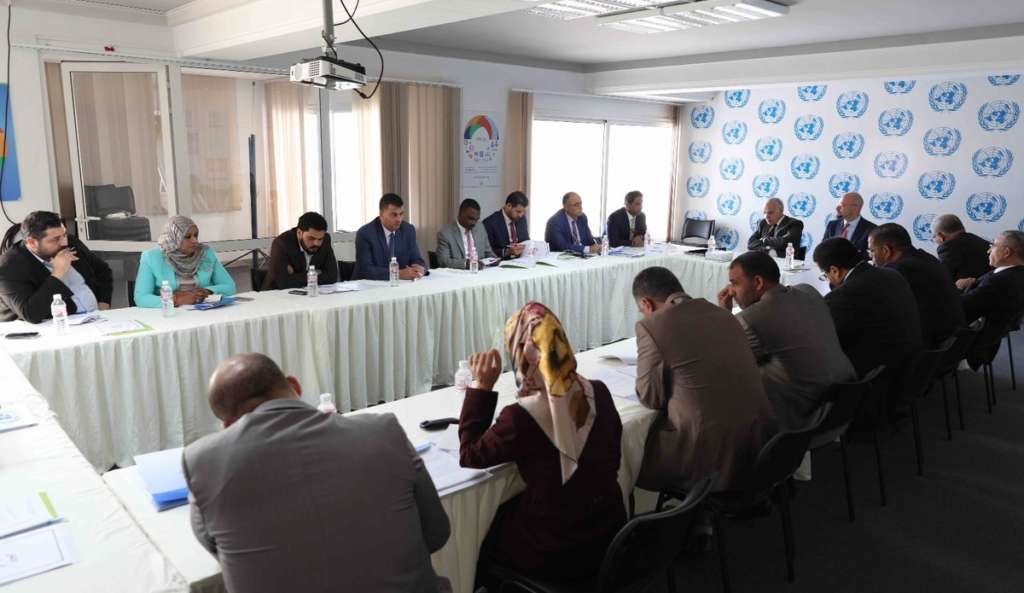Cairo, Tunis– Differences between members of the Joint Drafting Committee in charge with amending the Skhirat Agreement have hampered discussions between the two Libyan sides representing Parliament and the High State Council, amid mutual accusations of “refusing to deal with the political agreement.”
The disputes threatened to impede the negotiations, which kicked off on Sunday, after the withdrawal of Parliament’s representatives from the committee’s meeting on Monday evening.
“The reason for their withdrawal is the insistence of the High State Council’s dialogue committee not to resolve controversial issues and to return to points and understandings that have already been resolved,” said Abdul Salam Nasieh, the head of Parliament’s delegation.
The High State Council responded by saying that no amendments were originally requested.
“The House of Representatives [Parliament] is the one that refused to deal with the political agreement and insisted on its amendment.
“Now Parliament has to submit written notes of their points of objection.”
The Council’s representatives said in a statement issued at dawn on Tuesday that it was prepared to deal with Parliament’s written notes in a positive manner and determine what would be acceptable to them.
The statement underlined “total insistence on continuing the current efforts to reach an agreement with Parliament to alleviate the daily sufferings of the Libyan citizens.”
Immediately after the suspension of the meeting of the Joint Drafting Committee in Tunis on Monday evening, the spokesman for the UN mission said this would “give the opportunity for both sides to consult with the dialogue committees of Parliament and the High State Council”, noting that meetings and internal consultations would continue the next day, which did not happen.
Speaking on condition of anonymity, a member of Parliament’s dialogue committee told Asharq al-Awsat that the reason behind the suspension of the meeting was due to “demands by the High State Council representatives to have a greater proportion of competencies related to state appointments, in exchange for reducing the powers of the House of Representatives in the future, which we have rejected.”
Abdullah Blaiheq, Parliament’s official spokesperson, told Asharq al-Awsat that meetings were suspended until the State Council dialogue committee submits its written proposals on the points of disagreement.
“There have been some changes to what was put forward… They have returned to talk again about the issue of a president and two deputies,” a point that has sparked many controversies according to Blaiheq.
